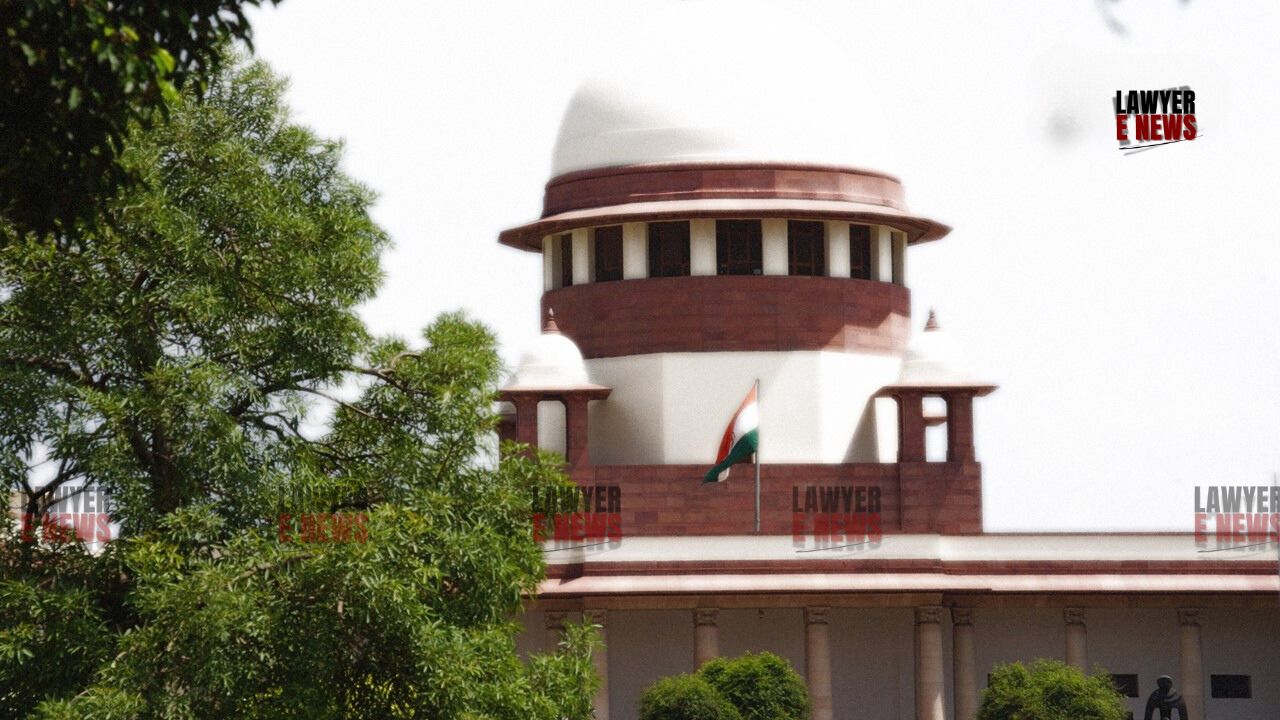-
by Admin
16 February 2026 1:47 PM



Resolution Applicant Starts with a Clean Slate—State Cannot Reopen Claims Omitted from Approved Plan - In a significant ruling reinforcing the sanctity of approved resolution plans under the Insolvency and Bankruptcy Code, the Supreme Court in M/s JSW Steel Ltd. v. Pratishtha Thakur Haritwal & Ors. held that recovery of statutory dues that are not part of an approved resolution plan is illegal. The bench comprising Justices B.R. Gavai and Augustine George Masih declared that “the continuation of proceedings despite the judgment and order of this Court being pointed out to their notice is nothing but contemptuous in nature.”
Though holding the state officers in contempt, the Court refrained from penal action, accepting their unconditional apology on the ground that this was “one of the first cases arising out of the Ghanshyam Mishra ruling.”
JSW Steel (formerly JSW Ispat Special Products Ltd.) had taken over Monnet Ispat & Energy Ltd. after its insolvency under IBC, 2016. The resolution plan submitted by JSW was approved by the NCLT on 24 July 2018. However, in 2021 and 2022, officials from the Commercial Tax Department, Chhattisgarh, issued multiple demand notices against JSW for unpaid dues of the erstwhile company, pertaining to the pre-resolution period (April–June 2017).
JSW filed a contempt petition, citing the Supreme Court’s landmark judgment in
Ghanshyam Mishra and Sons v. Edelweiss ARC, which held that all claims not part of the resolution plan stand extinguished and no proceedings can be initiated or continued in respect of such claims.
The State justified its actions on the basis that it was not a party to the NCLT proceedings and claimed the Ghanshyam Mishra judgment was inapplicable to it.
The Supreme Court firmly rejected the respondents’ defense, holding: “This Court in unequivocal terms held that all such claims which are not a part of the Resolution Plan, shall stand extinguished and no person will be entitled to initiate or continue any proceedings in respect to a claim, which is not part of the Resolution Plan.”
Reiterating its earlier pronouncements, the Court emphasized that once a resolution plan is approved, the successful applicant must be free from historical liabilities: “A successful resolution applicant cannot suddenly be faced with ‘undecided’ claims after the resolution plan has been accepted. This would amount to a hydra head popping up... throwing into uncertainty amounts payable by a prospective resolution applicant.”
The Court cited Essar Steel and Innoventive Industries cases to reinforce that “the
Resolution Plan binds all creditors, including government authorities, whether or not they participated in the proceedings.”
Addressing the attempt by Chhattisgarh tax authorities to raise post-resolution demands, the Court declared: “The demands raised by the respondents/authorities for a period prior to the approval date were totally contemptuous in nature.”
On the claim that the Rainbow Papers judgment gave the State a right to assert such dues, the Court clarified: “That judgment is distinguishable. In Rainbow Papers, the State had submitted its claim and it was rejected by the CoC. Here, no such claim was ever made by the State despite public invitation.”
While declaring the conduct of the State officials as contemptuous, the Court noted: “This being one of the first cases after Ghanshyam Mishra, we do not propose to take stern action. The respondents/contemnors have tendered unconditional apology, which is accepted.”
The Court, however, quashed all demand notices and proceedings: “The demand notices issued by the contemnors on the Petitioner Company and all proceedings pursuant thereto are held to be illegal and are quashed and set aside.”
This judgment is a powerful reaffirmation of the principle that “the resolution applicant must be handed a clean slate, and all stakeholders—government included—must abide by the final resolution plan.”
Date of Decision: 27 March 2025
